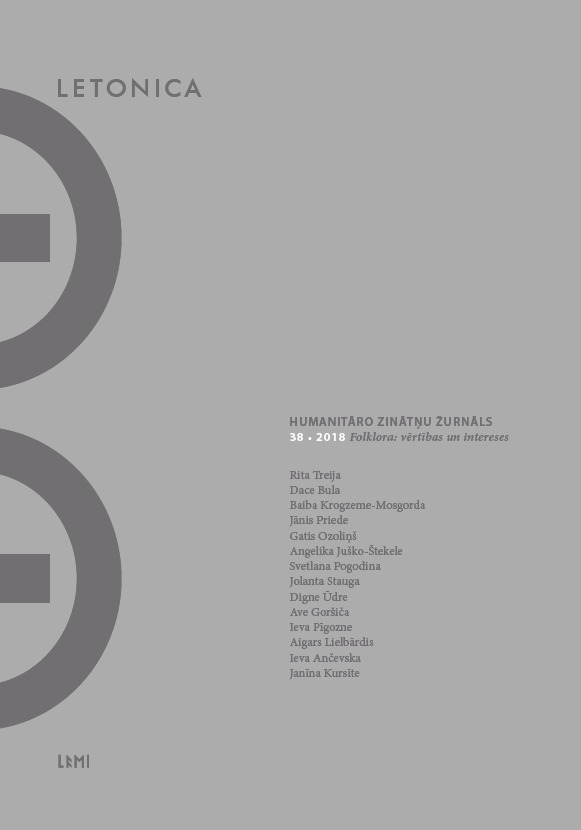Koncepts “grēks” latgaliešu pasakās
The Concept of Sin in Latgalian Fairy Tales
Author(s): Angelika Juško-ŠtekeleSubject(s): Christian Theology and Religion, Literary Texts, Customs / Folklore
Published by: Latvijas Universitātes Literatūras, folkloras un mākslas institūts
Keywords: the concept of sin; Latgalian fairy tales; folk/vernacular Christianity/Catholicism
Summary/Abstract: The article reveals the understanding of sin in Latgalian fairy tales, following the connections between folk-based traditional ethical ideas about the good and the evil, on the one hand, and the Christian interpretation of sin, on the other hand. 949 Latgalian fairy tales from Pēteris Šmits’s compilation Latvian Fairy Tales and Stories have been chosen as the source of research. Sematic cognitive approach has been used for the characterisation of the understanding of sin, emphasizing the nominative density of lexemes contained in the semantic field of sin, as well as etymology and contextual semantics, which have been analysed in accordance with the genre diversity of fairy tales. To obtain statistical data, a corpus of Latgalian fairy tales was created, which was then processed with software MonoConc, excerpting 55 fairy tales in 40 types of fairy tales, where 138 cases of words related to sin have been identified. These words establish the semantic field of the concept of sin and entail the nominations of sin and sinner. They allow identifying the actions related to sin. The system of fairy tale genres allow to examine the concept of sin not only as a lexeme, but also as a dialogical text, which contains references to the formation of views in folk religion. In all genres Latgalian fairy tales manifest a solid Christian context. The awareness of sin, confession, as well as the importance of sinner intertwines all genres of folklore, demonstrating rootedness of Christian values in the Latgalian culture. Nevertheless, the genre expression of fairy tales is not limited to the awareness of sin as something constant. It shows dialogical mechanisms of connection between folk traditional culture and religious views, which includes critical assessment of Christian values in the actual fairy tales, empirical studies in the legend-based fairy tales, and humorous doubts in the joke-based fairy tales.
Journal: Letonica
- Issue Year: 2018
- Issue No: 38
- Page Range: 92-101
- Page Count: 10
- Language: Latvian

